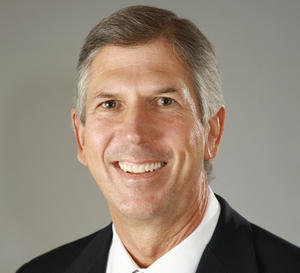Calvin Dooley, the American Chemistry CouncilCongress should permanently authorize chemical security bill
Calvin Dooley, president and CEO of the American Chemistry Council and a former U.S. Congressman, discusses the efforts to date of the chemical industry to secure its facilities, the need for Congress permanently to authorize a regulatory regime, and the fallacies of a one-size fits all approach to chemical security

Calvin Dooley, president and CEO of the ACC // Source: American Chemistry Council
Homeland Security NewsWire: The 9/11 attacks helped spur lawmakers and industry into passing the Chemical Facility Anti-Terrorism Standards (CFATS) regulatory regime. Now four years after President Bush signed the bill into law, what is the current state of security at chemical facilities around the nation? Is security adequate to prevent a potential terrorist attack?
Calvin Dooley: The terrorist attacks of 11 September, 2001, permanently altered our concept of what it means to feel secure in the modern world. On that day, we took stock of our nation’s vulnerabilities and realized that action was needed to further protect the nation’s critical infrastructure, including chemical facilities.
Thanks to our industry’s initiatives and investments as well as a comprehensive set of regulations put in place to improve chemical security, the country is more secure today from terrorism.
Within months of the September 11th attacks, the ACC [American Chemistry Council] instituted a stringent, mandatory security program called the Responsible Care Security Code.To date, ACC member companies have invested nearly $10 billion to further enhance site, transportation and cyber security at their facilities under the Security Code, which has become a gold standard for the industry and served as a model for regulatory programs.
Beyond industry initiatives, ACC and its members continue to be strong advocates for the regulatory programs like CFATS, which set a high bar for chemical security.
While we have made substantial progress to enhance all aspects of chemical security, we must not stop there. ACC and our members will continue to invest resources and support programs, like CFATS, that will further enhance our security.
HSNW: Critics of CFATS say the law does not go far enough and argue that there should be a federal preemption of state chemical plant regulations and that plants near urban areas should seek to use less volatile chemicals. In your opinion, would amending CFATS to include these two tenets improve security at chemical plants?
CD: Industry efforts and smart regulatory programs like CFATS have made chemical facilities, computer systems, and the transportation of chemical products more secure than ever before, which in turn has helped make communities and our nation more secure.
CFATS allows facilities to tailor their security plans to meet their unique needs while providing DHS with clear authority to fine or shutdown facilities that do not meet the program’s comprehensive security standards. CFATS has been successful precisely because it demands accountability for outcomes rather than attempting to take a one-size fits all approach by prescribing specific security measures.
CFATS should continue to require facilities to meet stringent security standards without interfering with their ability to use chemicals that are necessary to meet the needs of the nation. Decisions regarding chemical substitution should continue to be left in the hands of facility operators who fully understand the ramifications—beyond security—of such complex decisions.
HSNW: With the majority of chemical facilities owned and operated by the private sector, has the government done enough to partner with industry leaders to encourage security? What could it do to become a better partner?
CD: Much of what we have accomplished to enhance security over the past decade has been accomplished through smart regulatory programs and collaborative partnerships with the Department of Homeland Security, the Transportation Security Administration, the U.S Coast Guard, and other government agencies. Going forward we would like the federal agencies to establish clear and achievable expectations under programs like CFATS. Congress can also help provide regulatory certainty by allowing the regulations that are already in place move forward.
HSNW: Looking ahead, what do you foresee as the main challenges for securing chemical facilities over the next decade?
CD: We must build upon what we have achieved over the past decade to make our nation even more secure, protect jobs and preserve the country’s role as a leader in innovation. We took the lead ten years ago and are committed to leading the way on chemical security over the next ten years. It starts by continuing to invest in security enhancements through our Responsible Care Security Code to combat the ever changing threats to chemical security, including the emerging challenges posed by potential cyber attacks.
Congress has an opportunity to keep the momentum on chemical security moving forward by passing legislation that would extend CFATS without any significant changes. Regulations like CFATS and our partnership with the federal government have yielded significant safety dividends for our communities and our country. It is working. And we are committed to making it work over the next ten years.
